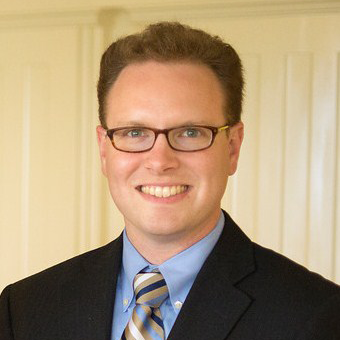Decoding US Elections: The Indispensable Insights Of Dave Wasserman
In the intricate and often turbulent world of American politics, where every election cycle brings a fresh wave of speculation and uncertainty, certain voices rise above the noise to offer clarity and data-driven analysis. Among these pivotal figures is David Nathan Wasserman, widely known as Dave Wasserman. Born on September 13, 1984, Wasserman has carved out a reputation as one of the nation's foremost political analysts, particularly revered for his deep expertise in elections to the United States House of Representatives. For anyone seeking to understand the granular dynamics of congressional races, Wasserman's insights are not just valuable; they are indispensable.
His work provides a crucial compass in navigating the complexities of electoral politics, offering a nonpartisan lens through which to view the ever-shifting landscape of competitive districts. Whether it's dissecting the chances of a party outperforming expectations in key races or pinpointing the handful of contests that will ultimately decide control of Congress, Dave Wasserman's analysis is a cornerstone for political enthusiasts, journalists, and strategists alike. This article delves into who Dave Wasserman is, the significant roles he plays, and why his contributions are so vital to understanding the pulse of American democracy.
Who is Dave Wasserman? A Profile in Political Analysis
David Nathan Wasserman is not just a political analyst; he is a specialist whose focus has brought unparalleled depth to the coverage of U.S. House elections. His career trajectory has been marked by a consistent commitment to rigorous, data-informed analysis, setting him apart in a field often prone to partisan spin. Before he became a household name among political junkies, Dave honed his analytical skills, preparing him for the demanding role he would eventually assume.
- Purpose Of Nipple Clamps
- Best Shampoo For Frizzy Curls
- Mixed Match Nails
- Best Movies To Sleep To
- Starbucks Labor Tea
His reputation is built on a foundation of meticulous research and an uncanny ability to identify the subtle shifts and underlying trends that often escape broader narratives. This dedication to detail is precisely why he is sought after for his perspectives on the races that truly matter. His work is not about predicting a winner in every race, but rather about providing a nuanced understanding of the competitive landscape, highlighting the factors that could sway outcomes, and identifying the races that are genuinely in play.
The Cook Political Report: A Beacon of Nonpartisanship
At the heart of Dave Wasserman's professional identity is his role as Senior Editor & Elections Analyst for The Cook Political Report with Amy Walter. Founded in 1984, The Cook Political Report has long been revered as an independent, nonpartisan outlet, providing objective analysis of U.S. elections for over four decades. This institution's commitment to neutrality and fact-based assessment aligns perfectly with Wasserman's own analytical philosophy.
As the U.S. House editor for this esteemed publication, Wasserman is responsible for tracking, analyzing, and forecasting the outcomes of hundreds of congressional races across the country. His work involves:
- Brunette With Red Undertones
- Does Oat Milk Cause Bloating
- Sliced Bob Haircuts
- Unique Hairstyles Women
- June 14th Horoscope
- In-depth Race Analysis: Providing detailed breakdowns of individual House races, including polling data, fundraising, candidate strengths, and district demographics. Subscribers to The Cook Political Report have first access to these individual race pages, offering a granular view not often found elsewhere.
- Competitive District Tracking: Closely monitoring the relatively small number of truly competitive races that will determine control of the House. This includes posing crucial questions like, "The Key to the House: Can Democrats Outperform in Competitive Districts Again?", reflecting his focus on the strategic importance of these contests.
- Nonpartisan Projections: Offering projections and ratings for races based purely on data and trends, without political bias. This commitment to nonpartisanship is a hallmark of The Cook Political Report and a core tenet of Wasserman's work.
Beyond the Report: A Key Figure on the NBC News Decision Desk
Dave Wasserman's influence extends beyond the pages of The Cook Political Report. He is also a prominent contributor to NBC News, serving as a key figure on their decision desk during election nights. This role places him at the forefront of real-time election coverage, where his expertise is crucial for interpreting incoming results and making calls on races as they unfold.
His presence on the NBC News decision desk underscores his reputation as a trusted authority. On election eve, when the stakes are highest and every vote counts, analysts like Wasserman are vital for providing accurate, immediate context. He is known for his calm demeanor and ability to quickly synthesize complex data, helping millions of viewers understand the implications of election returns as they happen. Leading up to major elections, David Wasserman also contributes to discussions about "key issues and races to watch in the final days of campaign," offering a preview of the electoral battlegrounds and the narratives shaping the contests.
The House Whisperer: His Unique Focus on Congressional Elections
While many political analysts cover a broad spectrum of elections, Dave Wasserman has a distinct specialization in the U.S. House of Representatives. This laser focus allows him to delve into the nuances of congressional districts, understanding the local dynamics, candidate profiles, and demographic shifts that often dictate outcomes. The House, with its 435 individual races, is a complex beast, and Wasserman's ability to track and interpret these contests makes him an invaluable resource.
His work involves not just looking at national polls, but diving into district-level data, historical trends, and candidate specific factors. This granular approach is what allows him to identify the truly competitive races and distinguish them from those that are likely to be safe for one party or another. His analysis helps to cut through the noise, providing a clear picture of where the real battles are being fought and what the likely implications are for the balance of power in Washington.
Why His Analysis Matters: Trust and Clarity in a Complex World
In an era characterized by an abundance of information—and often misinformation—Dave Wasserman's commitment to nonpartisan, data-driven analysis is more crucial than ever. His work provides a reliable source of truth for those seeking to understand the intricacies of American elections without the filter of partisan bias. For journalists, strategists, academics, and the general public, his insights offer:
- Objectivity: A clear, unbiased assessment of electoral races, free from political agendas.
- Depth: Detailed analysis that goes beyond superficial headlines, exploring the underlying factors influencing outcomes.
- Accuracy: A track record of reliable predictions and insightful observations that have earned him widespread trust.
- Clarity: The ability to distill complex electoral dynamics into understandable narratives, making sense of a chaotic political landscape.
Conclusion: The Indispensable Voice of Electoral Insight
David Nathan Wasserman, known widely as Dave Wasserman, stands as a pillar of nonpartisan electoral analysis in the United States. Through his meticulous work as Senior Editor & Elections Analyst at The Cook Political Report with Amy Walter and his crucial role on the NBC News decision desk, he provides unparalleled insights into the dynamics of U.S. House elections. His commitment to data-driven, unbiased reporting on competitive races and key issues makes him an indispensable resource for anyone looking to truly understand the pulse of American politics. In a world often clouded by partisan rhetoric, Wasserman's clear, precise, and objective analysis shines as a beacon of reliability, guiding us through the complexities of election cycles and helping to decode the future of the nation's political landscape.
Article Recommendations
- Defined Lips
- What Happened In 2014 Pop Culture
- Brunette Highlights
- How To Make Blonde Hair Darker
- Sassy Bob



Detail Author:
- Name : Miss Reina Marks
- Username : zrenner
- Email : schuppe.belle@waters.org
- Birthdate : 1996-02-25
- Address : 73377 Israel Junctions West Ulices, WI 89691-5648
- Phone : 973.806.8610
- Company : Brekke, Wuckert and Rohan
- Job : Marketing Manager
- Bio : Cumque voluptatem quis magnam adipisci velit. Ducimus et et voluptas repudiandae rerum eveniet. Nesciunt fugit qui et est repudiandae. Quaerat dicta animi eveniet dolorem aliquid.
Socials
linkedin:
- url : https://linkedin.com/in/hills1985
- username : hills1985
- bio : Velit et consectetur vitae culpa rem.
- followers : 5239
- following : 1318
twitter:
- url : https://twitter.com/isaias_xx
- username : isaias_xx
- bio : Quae mollitia ut commodi beatae facere et ut. Optio commodi dolorum aut praesentium est et et ex. Et et et nostrum quia ipsum tempore.
- followers : 1740
- following : 1299